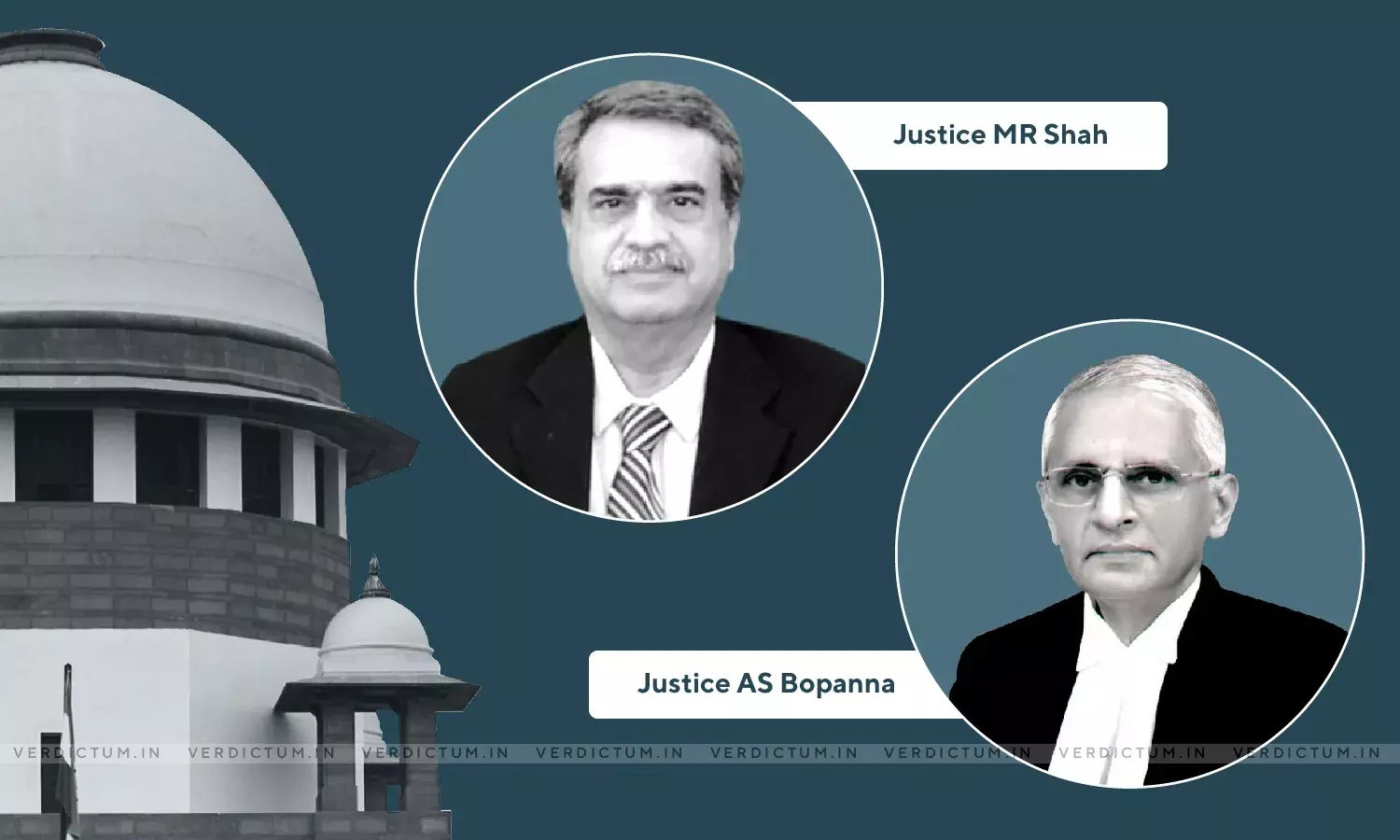Two Persons Cannot Be Appointed On One Sanctioned Post: SC Declines Relief To Stenos Appointed On Leave Vacancies
A two-judge Bench of Justice MR Shah and Justice AS Bopanna has held that there cannot be an appointment of two persons on one sanctioned post and the appointments which were made following the due process of selection would prevail over the other.
An appeal was preferred assailing the judgment of the Division Bench of the Allahabad High Court which had dismissed the appeal and upheld the judgment of the Single Bench of the High Court. The Single Judge had allowed the Writ Petition of Respondent No. 4 and quashed the set aside the appointment of the Appellants and set aside the order of termination of the services of Respondents 1 to 3.
Advocate Mr. Pardeep Gupta appeared for the Appellants, Advocate Ms. Preetika Dwivedi appeared for Respondent No. 4 (Allahabad High Court), and Advocate Dr. Ashutosh Garg appeared for Respondents 1 to 3 during the proceedings before the Court.
Though the Appellants were selected for the post of English Stenographers, they were not appointed for want of vacancies till the expiry of their select list. However, they were appointed to leave vacancies of Hindi Stenographers, subject to the condition that their appointments will be terminated once the regular employees resume their duties.
Respondents 1 to 3 were appointed for the post of Hindi Stenographers after following a due process of selection.
Upon their appointment, the services of the Appellants were to be terminated however, the Appellants made representations to the District Judge Moradabad after which a Hindi Typing Test was conducted and all the three Appellants were found to be not qualified.
Despite this, the District Judge terminated the services of Respondents 1 to 3 who were selected after due process and appointed the Appellants who were appointed on a temporary basis as against the post held by the former without intimating the High Court.
The Appellants contended before the Court that they had served for almost 30 years and it was not justified to quash their appointments.
While the Respondents argued that they were selected after following due process of selection and there could not be two persons working on one sanctioned post.
The Apex Court, after hearing the contentions of the parties at length, held that the appointment of the Appellants and termination of the Respondents 1 to 3 was rightly quashed and set aside by the High Court for the following reasons –
- Firstly on the ground that in the year 1990 no direction could have been issued to make the appointment on the basis of the select list dated 14.07.1987 as the select list dated 14.07.1987 expired and came to an end on 13.07.1988;
- Secondly, the appellants failed to clear/pass the speed test for the post of Hindi Stenographers; and
- Thirdly, the appellants were never appointed after following due procedure of selection, against which the Respondent Nos. 1 to 3 were selected and appointed pursuant to the fresh examination which was conducted for the post of Hindi Stenographers.
"The appellants have gained illegally and they were continued in service pursuant to the interim order of the High Court," the Bench opined.
The Court further held that once it was established their continuation in service was bad in law they could not be permitted to submit that their services should be protected, though their appointments were not legally tenable.
"Once their appointments are held to be illegal and it is held that they have no right to continue on the post to be occupied by other eligible candidates, the necessary consequences shall follow," the Bench observed.
Additionally, the Court asserted, "Unfortunately, it has so happened that after 2012 on the post of Hindi Stenographers the appellants as well as Respondent Nos. 1 to 3 are working, which is not permissible."
"There cannot be appointment of two persons on one sanctioned post. Otherwise, there will be financial burden on the State of two persons on one sanctioned post," the Court held.
Furthermore, the Court noted that the prayer of the Appellants to continue them in service and to pay pensionary benefits, etc. could not be granted. Appellants are not entitled to any relief, the Court observed.
The Court added, "In fact, they are benefitted by continuing in the service after 1988 though their services were required to be put to an end after the fresh selection in the year 1988 and after the Respondent Nos. 1 to 3 were appointed after following due process and procedure as per Rules, 1947."
In the light of these observations, the Court dismissed the appeal.
Click here to read/download the Judgment












